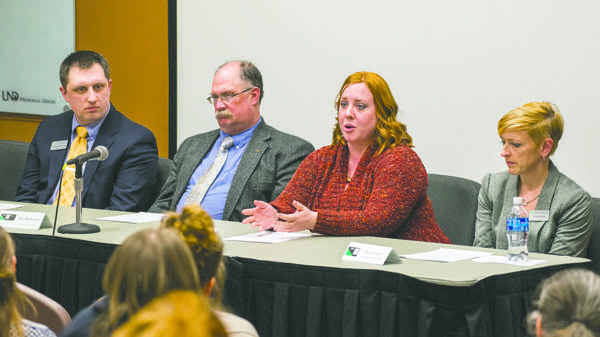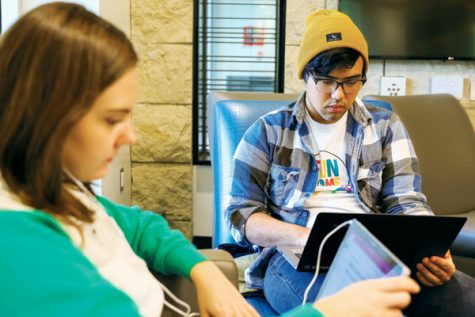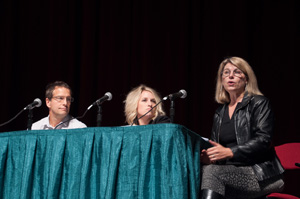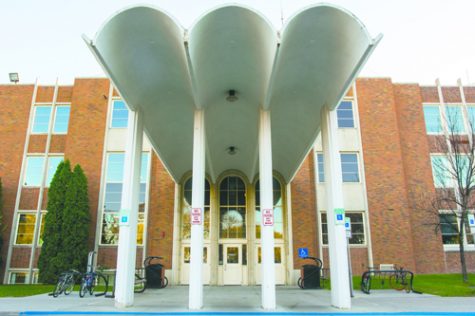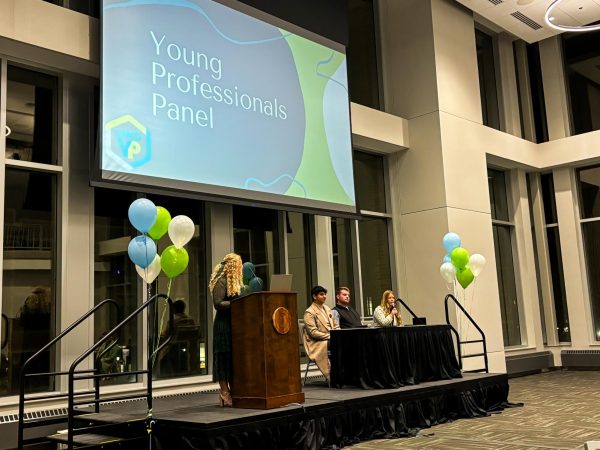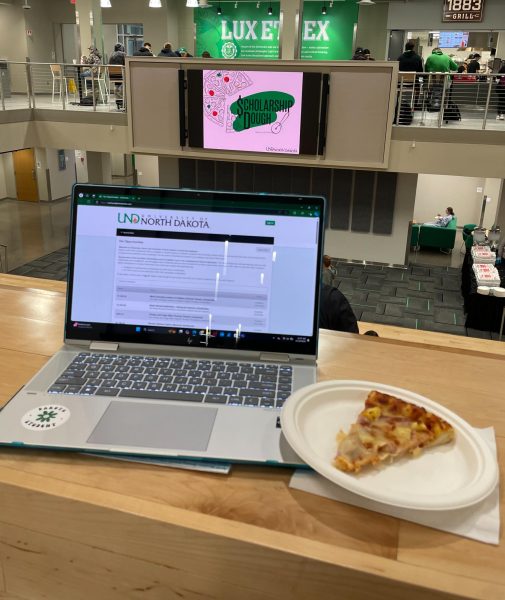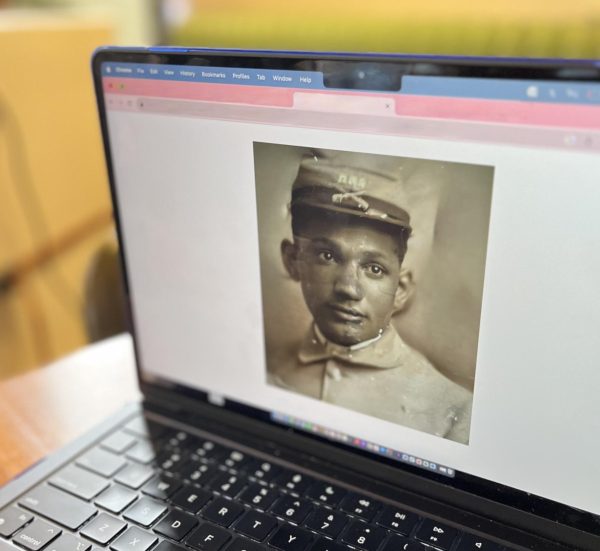Campus groups advocate for sexual assault awareness
Maren Richards with the Community Violence Intervention Center spoke this past Tuesday as part of the “It’s on US” campaign on UND’s campus to raise awareness regarding sexual assault. Photo by Nick Nelson/The Dakota Student
The “It’s On Us” campaign continues during sexual assault awareness week with a showing of the CNN film The Hunting Ground.
The Hunting Ground is a documentary that portrays astonishing facts and statistics about the crisis of sexual assault on college campuses across the US. Many stories were told about an endless number of young men and women who were pushed away by college administration when they needed help the most.
One father of a rape victim stated in the video that he had a very positive outlook on his daughter’s education. “We will drop our daughter off and she will be safe because the college has a good reputation.”
However, sexual assault is vastly under-reported at many colleges, from small town to Ivy League, in to keep students coming in keep the college running with student dollars.
Basically, the same hardships were told over and over again in the testimonies presenting in the documentary. Victims reported being brushed off, not taken seriously and not believed. Countless institutions put the blame on the victim, asking what they were wearing or if they were under the influence during the incident.
In one case, a student victim tried to prosecute her attacker and have the school take action as punishment. The school expelled the assailant, but let him re-enroll a short time later.
This victim had classes with her attacker, and he lived in the same residence hall. This poses an obvious problem for the well-being of the victim, hindering academic, social and mental wellbeing.
This point is exactly what prompted University of North Carolina student sexual assault survivors Andrea Pino and Annie Clark to take matters into their own hands. The two young women, along with the help of the United States Department of Education, took legal action to fight back against UNC for violation of their rights as stated under Title IX.
Title IX is a law passed in 1972 that requires gender equality for boys and girls in every educational program that receives federal funding.
The two women continue to teach, help and support people about Title IX and the issue of sexual assault in general.
Colleges say they take these issues very seriously, however the video showed what they actually meant by that statement. Numerous unreasonable “punishments” were bestowed on the attackers if found guilty of committing a sexual assault. Some of which include the individual will be expelled upon graduation, be suspended during the summer term and to be suspended from school for a single day.
Often times, schools sweep allegations of sexual assault towards an athlete under the rug in an attempt to avoid further controversy at the school.
One example in the video was of college football star Jameis Winston at Florida State University. After being accused of raping a classmate, Erica Kinsman, he got away with everything and was not charged, which the film attributed to his status as a high-profile football player.
The video follows Kinsman’s entire struggle, starting with the police department not taking sufficient action, to attempting to prosecute, to the university trying to cover it up. Winston went on to win the 2013 Heisman Trophy, which was a short period of time after the entire sexual assault process came to an end.
After the viewing, Amber Flynn, Coordinator of Sexual Respect & Violence Prevention at UND, put together a panel of experts and asked them about issues surrounding sexual assault. Panel members included the Director of the Women’s Center Kay Mendick, the Director of Judicial Affairs & Crisis Programs Alex Pokornowski, UND Police’s Lieutenant Don Rasmuson, CVIC advocate Maron Richards and Title IX Coordinator for UND Donna Smith .
Reporting Sexual Assault
There are many places that can be contacted including the Dean of Students Office, the Women’s Center, Community Violence Intervention Center (CVIC) advocate, University Counseling Office or a faculty or staff member. Ultimately, the report will get funneled to the Dean of Students office, however, it’s the victims right to decide whether to report to UPD or not.
“During the entire process, students will not be able to come into contact with their victim and we will adjust residence hall/dining center/class schedules to help limit the victim’s contact with the assaulter, even if the student chooses not to go forward with the legal process,” Alex Pokornowski said about the process.
Richards, said if the victim does not want to tell the university, CVIC is completely separate, as well as the university counseling center.
One major issue is that sexual assault is severely underreported; survivors and victims are not coming forward and reporting their assault. Mendick said she knows about the struggle that students go through when faced with the decisions that follow a sexual assault.
“I know we have walking wounded on our campus. That’s why we try to have resources everywhere, so when that survivor is at a point in time where they feel strong enough to come forward, they can,” Mendick said.
Education
Communication and education are an essential part of preventing and addressing sexual assault. The community should be educated so when victims come out and talk about what happened, friends and social support know how to help. Faculty, staff, and students should also be educated, so if a student comes up to them, they know how to handle the situation.
Over 100 colleges and universities are under investigation by the Department of Education for not handling sexual assault in an acceptable way.
UND does offer a vast amount of resources and trained professionals that are willing to help.
“I am appalled when I watch this video. I don’t work with anyone on this campus that would try to hide something like that, they are all concerned about the students,” Donna Smith said, regarding why UND is different.
“Why would you trust that we really mean what we say? Because actions speak louder than words. If any of you feel as though you aren’t being heard or listened to, or feel brushed off, call out anyone of us. None of us would be sitting here if you weren’t students at UND.” Mendick said.
UND is holding events all week as a part of the “It’s On Us” campaign and students are encouraged to get involved and get educated so they can be prepared to deal with a crisis, whether it be themselves or someone they care about.
Journey Gontjes is staff writer for The Dakota Student. She can be reached at [email protected]


